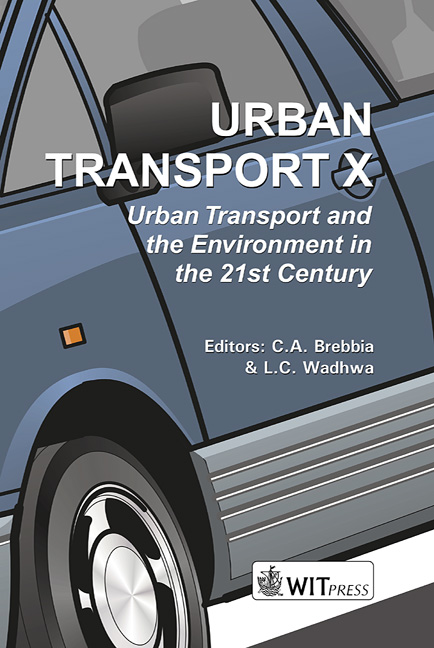The Optimal Cost Allocation For Urban Transport Management
Price
Free (open access)
Transaction
Volume
75
Pages
10
Published
2004
Size
436 kb
Paper DOI
10.2495/UT040881
Copyright
WIT Press
Author(s)
T. Suzuki & T. Miyagi
Abstract
T. Suzuki1 & T. Miyagi2 1Faculty of Economics, Chukyo University, Japan 2Faculty of Regional Studies, Gifu University, Japan Abstract Several researchers have discussed the grounds for higher priority of investment in urban mass transit systems within the context of the Downs-Thomson’s paradox. The optimal cost allocation of the introduction of a new transit system between urban transports users were examined as the second best pricing problem constrained by the binary mode choice/assignment model and the restriction of the CO2 discharge in the urban transport network in Gifu city. The results are that the effects of introducing a guide-way bus system are limited in the city because its urban transport system is inclined to very heavy automobile use. However, charging for automobile use is possible. Furthermore, if the public transport agency that operates the guide-way bus system were to be subsidized by profits from automobile charge substitutable transport modes could be made available econo
Keywords





